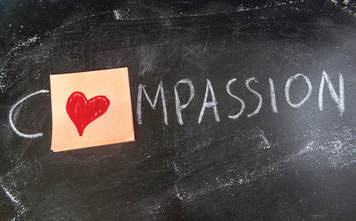 Leviticus 13:1-2, 44-46 Mark 1:40-45 ‘Feeling sorry for him, Jesus stretched out his hand and touched him. ‘Of course I want to!’ he said. ‘Be cured!’ (Mark 1:33-34a) The gospel presents us with a miraculous healing which ends up spreading Jesus’ fame as a healer and wonderworker to such a great degree that by the end of it people from far and wide come to seek the Lord’s help wherever he went (Cf. Mark 1:45). And out of this short story there are two key elements I would like to look at with you. First, let us look at the leper himself. We read that a nameless man suffering from leprosy (or more likely by an unidentified skin condition) approaches Jesus to ‘plead on his knees’ (Mark 1:40). He does not profess faith in Jesus in any explicit way, but his posture before the Lord gives away what he actually believes; in Biblical time, and perhaps even today, kneeling and/or bowing down was a manifestation of “worship”. This man somehow knows and believes that he is standing before the Son of God. And in him we see a person who comes to Jesus asking for healing with confidence about the Lord’s power and faith in him. St Mark doesn’t give us his name so that each of us could picture him or herself in his place, kneeling, pleading before Jesus; ‘If you want, you can cure me.’ Then, we should look at the issue of ritual purity. Last week’s gospel showed us how Jesus healed those who sought his help under the cover of night – probably because nigh-time was the only time they could have wandered around without being judged against the strict standards of Jewish purity laws. Today’ story follows on from that, by showing us yet another person oppressed by the sigma of being ritually unclean because of their illness, someone who had to live outside built up areas, had to warn others about his uncleanliness, and had to abide to the purity rules set out in our first reading. Undoubtedly, Jesus could have cured the man without even a word. But instead he chooses to reach out to the man and to touch him, jeopardising his own ritual integrity, and contracting the same social stigma by association. Why? ‘Feeling sorry for him, Jesus stretched out his hand and touched him. ‘Of course I want to!’ he said. ‘Be cured!’ (Mark 1:33-34a) Jesus feels sorry for him. Or, in a better translation, Jesus has compassion for him; Jesus in that moment is moved by the literally gut-wrenching feeling of compassion – “suffering with”. He reaches out to heal and to give the poor man that human contact which had been denied to him since the very first moment he had been pronounced unclean. But in touching the leper Jesus also shows that nothing whatsoever we could bring to or share with him could ever make him unclean – he has authority over illness, the law, and whatever stigma we can think of. On Wednesday we will enter the holy season of Lent. This time of spiritual renewal calls us each year to do two things; to return to God with all our hearts, acknowledging our sins, so as to discover anew forgiveness and freedom in Jesus; and also to exercise self-denial and charity so as to break bad habits, growing into the likeness of Christ. During this time our church will look increasingly sombre as the weeks will go by, we’ll put ash on our heads, a few of us will give up pleasurable things, and others will redouble their efforts in doing good works and in giving to charity. In all these things, it is as if we humbled ourselves before God, so as to move him to move his compassionate heart towards us, and through compassion to win pardon and grace. So, as we stand on the threshold of Lent, today’s reading teach us something about the season we are about to enter. First, as Jesus shows us that no illness can make ritually unclean, let us imitate him in the way we show compassion and reach out to others. Today, the Lord Jesus shows us divine healing powers which we do not possess, but the principle behind his actions holds true for each one of us. By imitating Jesus, striving to grow into his likeness, let us be moved to compassion towards those affected by the stigmas of our society. And in compassion let us reach out to heal. Secondly, on a personal level we are all like the leper who approaches Jesus; sin is something that not only we do, but something that pervades our society, something that we cannot cure ourselves. So during Lent let us approach the Lord Jesus with the same confidence and faith shown by this man. Let us fall on our knees and say to the Lord with one voice; “If you want, you can cure me.” Let this be our Lenten prayer – If you want you have the power to save me, my family, my neighbourhood, my world. Please, Lord, do it!
0 Comments
Your comment will be posted after it is approved.
Leave a Reply. |
Archives
June 2020
Categories
All
|
 RSS Feed
RSS Feed


